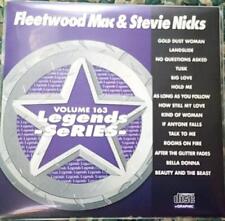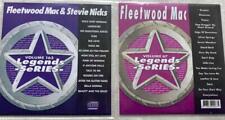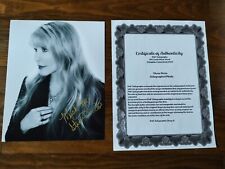|
1970
The End Of The Game As the first year of the new decade brought the end of many of the great musical forces of the sixties--The Beatles, Jimi Hendrix, Janis Joplin, etc.--so 1970 was also the year that nearly ended Fleetwood Mac. As the year opened, however, none of this was particularly evident. The band's manager, Clifford Davis, released the first of two singles which are in fact his vocal edited over previously- released instrumental tracks of Fleetwood Mac songs. The EP of Jeremy's musical parodies that initially was going to be included in the Then Play On package was fleshed out into an album in its own right, and was released in Britain in January. Jeremy Spencer is an excellent parody album; in it nothing escapes Spencer's barbed wit: not Elvis, nor Jerry Lee Lewis, nor even Jeremy's beloved Elmore. For whatever reason, the album has never been issued in the US. Also for unknown reasons, the Blues Jam At Chess album, released in Britain in December 1969, was split in half in the U.S. and issued as Blues Jam In Chicago Vol. 1 and 2 in February, and then re-joined in April as Fleetwood Mac In Chicago . Peter Green's personal situation had gone from bad to worse in the ending months of 1969 and into 1970. He increasingly found it difficult to reconcile the vast amounts of money coming his way while at the same time children were starving. During that time he had literally given away thousands of pounds and much of his possessions because of the guilt he felt and, partially as a result, was undergoing an intense spiritual crisis. He, at one point, even sounded the (laudable however unrealisitic) idea to the rest of the band of working solely for charity, keeping only enough money to cover expenses. His LSD use had also apparently greatly increased, exacerbating an already desperate situation. Rumors were flying about the band's next project--perhaps a Kirwan-Green instrumental album, or maybe even a Spencer-Green religious epic along the lines of Jesus Christ Superstar. Although one or the other band member espoused these (and other) projects at one time or another, neither came to fruition. One project that did, although very belatedly, was a live album recorded from the three nights the band played at Boston's Tea Party club in late 1969. It would take fifteen years for it to achieve release, however. Peter Green had originally planned to quit the group after "Oh Well" was released, but was persuaded to stay on by Clifford Davis, "for the sake of the guys". However, after the band completed the US tour in April 1970, he made his decision final, but not before recording one more single, "Green Manalishi", which the band had previewed during the US tour. The remaining dates of the British leg of the tour had to be cancelled. "Green Manalishi" was, in addition to being Green's swan song with the band, in many ways a culmination of the agony he was going through. Green himself claims it was written as a result of a particularly horrifying nightmare, and the words back up his claim--here is a man with his nerves bared, at the end of his rope. The bone-crunching instrumentation makes it throb! The B-side, "World In Harmony", perhaps culled from the proposed Green-Kirwan guitar album, is a much mellower affair, though again flawlessly executed. After Green's departure, the band was at a loss as what to do next, since neither Spencer or Kirwan felt they could take up the slack from Peter Green's departure. The group did not fold, however. It was decided that they work on a new record. Knowing only that they didn't want to do another album of hardcore blues, the band, along with the wives, children, etc., adjourned to a country estate lovingly referred to as Kiln House to record their next album. One might expect that after such as loss as Green's departure, any subsequent record might be something of a dissappointment. Not so in this case! Kiln House , as the resulting album was called, is perhaps a more consistent effort than the previous disc with Danny and Jeremy rising to the occasion, with the strong support of Mick and particularly John, to fill the void. Spencer and Kirwan handle their new-found leadership roles quite effectively, collaborating on some of the songs (like the excellent "Station Man"). Separately, Jeremy's songs continued much in the same vein as on the Jeremy Spencer album, with more than a nod to country, early rock 'n roll, etc., as well as the only song Spencer ever wrote of an autobiographical nature (in contrast to Peter Green), "One Together". Danny continues as the instrumental virtuoso, with songs like "Earl Gray". Christine McVie (having now dropped her maiden (and stage) name, Perfect) also contributes some of the piano as well as the excellent cover artwork, though she was not yet officially part of the band. A fine, well-balanced effort. Christine's album, Christine Perfect , was released in Britain in June. It was a fragmentary collection of songs; some of them recorded with Chicken Shack, some from the last several singles she released, with a few others thrown in. Its release marked the end of her abortive solo career, at least until 1984. As it was, Christine Perfect was not released stateside until 1976, and then dubiously titled The Legendary Christine Perfect Album . Not exactly a terrible album, but certainly not "Legendary". By August 1970, however, Christine McVie had officially joined Fleetwood Mac. At the end of the year, Peter Green released The End Of The Game , an all-instrumental jam album. Despite some fiery guitar work, the record failed to make much of an impression. It was to be his last album for another nine years. Collectors should be aware that a Dutch pressing of this album exists which purports to have a version of "Hidden Depth" which runs 10:06, or so the album sleeve and label would have you believe. The version on that album, which is the same as on all other pressings, runs just under five minutes. I guess you can't believe everything you read . . .
|









